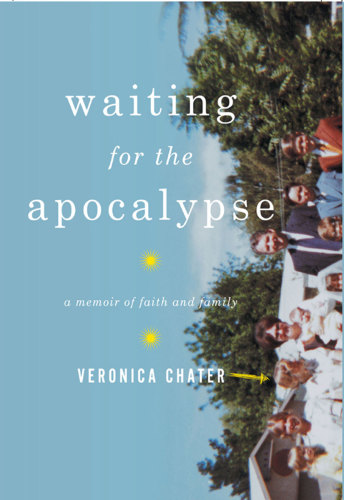
Waiting for the Apocalypse
A Memoir of Faith and Family
کتاب های مرتبط
- اطلاعات
- نقد و بررسی
- دیدگاه کاربران
نقد و بررسی

November 17, 2008
As a young child, freelance writer Chater learned from her parents that the reforms of Vatican II brought “the Smoke of Satan” into the Roman Catholic Church. Then one day her father announced that the family would be leaving its Northern California home and moving to Portugal so they could be closer to the true faith. That trip turned out to be a disaster, and this powerful memoir becomes increasingly grimmer as the Chaters return home and become involved in increasingly conservative religious groups plotting “the Catholic counter-revolution,” until being forbidden to wear “modern clothes” like blue jeans is the least of the teenage girl’s problems. Chater finds plenty of dark humor in the way her father’s religious obsessions blinded him to reality and led the family into financial hardship, but she never turns him into a cartoon villain. Even when he turns out to be a Confederate sympathizer and a monarchist, or after he kicks her and her sister out of the house for engaging in premarital sex, she handles his story with sensitivity and grace. Chater’s memoir reminds us how easy it can be for ordinary families to get caught up in religious fervor, with emotionally devastating consequences that linger long after faith has been abandoned.

November 1, 2008
In her first book, Chater takes readers through her childhood in the 1970s with a dogmatic father who believes the reforms of Vatican II will cause an apocalypse called the Holy Chastisement, a practical mother, and (eventually) ten siblings. In 1972, the family leaves liberal California for Fatima, Portugal, hoping for a Catholic utopia. Unfortunately, Portugal has also adopted Vatican II, and the business that would support them never materializes, so it's back to California. For the next several years, the family moves around in search of traditional Catholic schools, churches, and societies and other counterrevolutionaries against Vatican II. Chater's father is too easily persuaded by other traditional Catholics, even sending two of her brothers to a cultlike seminary and training program. Throughout the book, Chater struggles to balance her love for her family with her increasing doubts about their beliefs. A final chapter and an epilog bring resolution to the tale, summarizing the family's status today. This memoir is recommended for most public libraries.Erica L. Foley, Clinton-Macomb P.L., Clinton Twp., MI
Copyright 2008 Library Journal, LLC Used with permission.

























دیدگاه کاربران